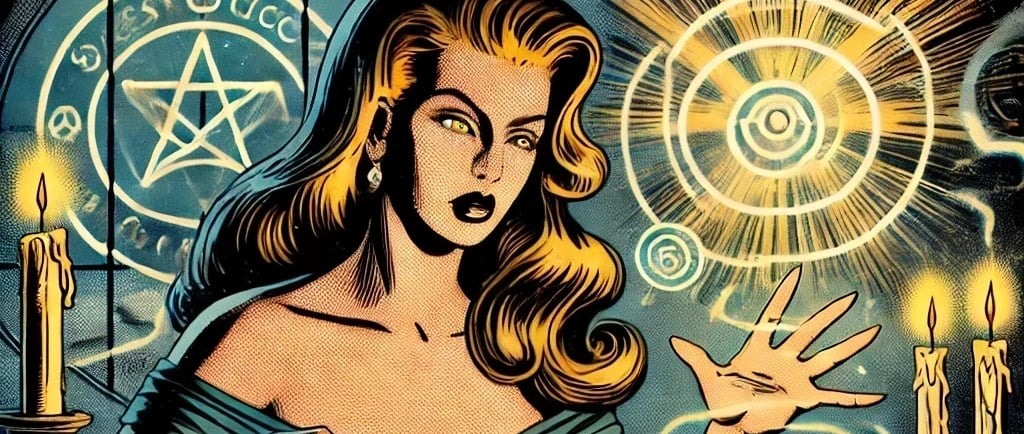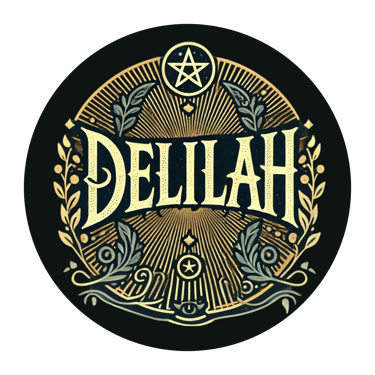The Power of Cursing: Myths, Truths, and When It’s Warranted
Cursing in witchcraft is often misunderstood—this guide explores the myths, ethical considerations, when it’s warranted, and the role of collective baneful magic in resistance movements.
LIFESTYLETIK TOKPRACTICAL ADVICEWITCHY
Delilah Dash
3/28/20252 min read


Cursing is one of the most controversial and misunderstood aspects of witchcraft. While some see it as dangerous or unethical, others recognize that baneful magic has a place in protection, justice, and reclaiming power. The reality? Curses aren’t inherently evil—but they’re not to be taken lightly either.
This guide breaks down the myths, ethical considerations, and responsible use of cursing in witchcraft—so you can decide for yourself if and when it’s warranted. 🔥✨
The Myths & Misconceptions About Cursing
Before diving in, let’s address some of the biggest misconceptions surrounding curses and hexes:
🚫 “Cursing is evil.” – Magic, like nature, is neither good nor bad. It’s about intention and consequence.
🚫 “Curses always backfire.” – While poorly executed magic can have unintended consequences, experienced practitioners ground, shield, and protect before working with baneful magic.
🚫 “A real witch never curses.” – This is a modern moralization. Many historical and cultural magical traditions include protective or retaliatory cursing.
🚫 “Hexing is the same as cursing.” – Not exactly. A hex is often temporary or minor, while a curse is usually long-term and deeply rooted.
When Is Cursing Warranted?
Not every situation calls for baneful magic, but there are times when it may be justified:
🔥 Protection – When you need to set firm energetic boundaries against abusers, stalkers, or harmful people.
⚖️ Justice Magic – When mundane justice has failed and you seek energetic balance or accountability.
🛑 Breaking Toxic Cycles – Some curses are cast not to harm, but to stop ongoing harm.
However, baneful magic should never be the first option—it requires deep reflection, responsibility, and willingness to accept consequences. Only work with it if you are certain and prepared.
Ethical Considerations Before Casting a Curse
Before performing baneful magic, ask yourself:
⚖️ Have I exhausted mundane options? Magic should complement real-world action, not replace it.
🔮 Am I acting from clarity, not impulse? Anger can cloud judgment—ensure your intent is rooted in necessity, not revenge.
🛡️ Do I have protections in place? Grounding, shielding, and reversals are crucial when working with baneful energy.
🔄 Am I ready to take responsibility? All magic carries consequences—are you prepared to accept what may come?
Types of Baneful Magic & Their Purposes
If you decide cursing is necessary, there are different approaches:
🔥 Binding Spells – Prevents someone from harming you or others, without actively harming them.
🌑 Return to Sender Spells – Reflects negative energy back to its source.
⚡ Classic Curses & Hexes – Directs misfortune or disruption toward a target.
🌿 Witch’s Bottles & Poppets – Long-term protection or cursing, depending on materials and intent.
🌪️ Banishing & Severance Work – Cuts ties permanently and removes a person’s ability to influence you.
Witches & Collective Cursing: A Call for Respect
Throughout history, witches have used collective baneful magic to fight oppression, injustice, and harm. A modern example is the Ukrainian witches on TikTok hexing the current U.S. administration. These practitioners are using their craft to push back against political corruption and systemic harm—and, honestly, we love them for it.
⚠️ Why This Matters:
Respect Other Witches’ Practices – You don’t have to participate, but discrediting or mocking their work is disrespectful.
Understand the Role of Witchcraft in Resistance – Magic has always been a tool of the oppressed against the powerful.
Avoid Spreading Rumors – Misinformation about baneful magic often fuels fear and division within the witchcraft community.
Witches don’t have to agree on every practice, but we should support each other’s right to use magic as needed.
Final Thoughts: Magic with Intention & Responsibility
Cursing is a tool—neither good nor bad, but powerful. Like all magic, it requires intention, wisdom, and accountability. If you choose to work with baneful magic, do so with full awareness of its effects and ethical weight.
What are your thoughts on cursing in witchcraft? Let’s discuss!
The magic’s already happening.
Explore.
Say it.
Retro
hello@delilahdash.com
© 2026. All rights reserved.
